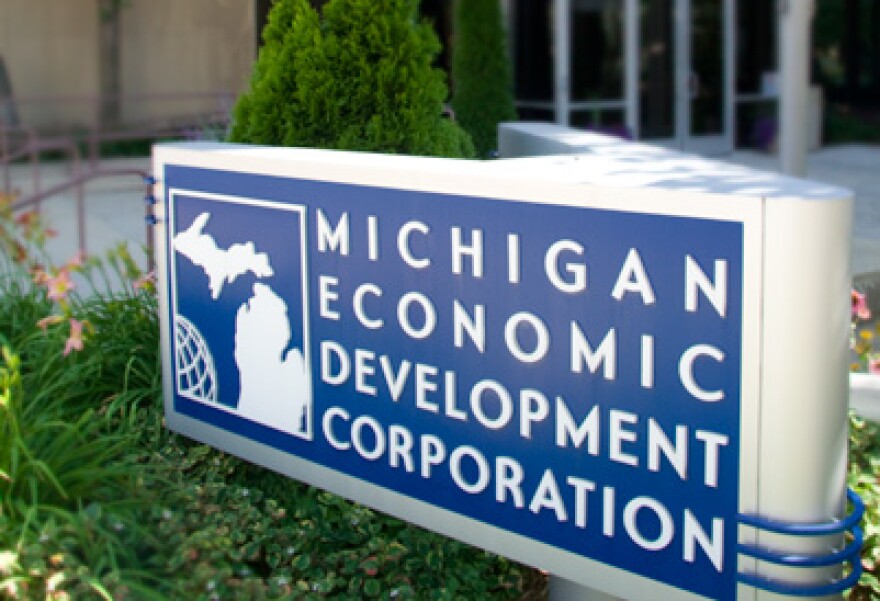You might recall the Legislature recently rejected lowering the income tax rate. The judgment of the majority and the Governor was that Michigan just couldn't afford it.
Despite revenue increases since recovery from the Great Recession, the State of Michigan says it's still tight. It can't increase revenue sharing to municipalities and couldn't afford to fix the roads without new fees and taxes.
But Michigan still has money for what critics would call "corporate welfare."
One part of that is a legacy of tax credits costing Michigan billions of dollars over several years. A second part is funneling money to the Michigan Economic Development Corporation to invest in Michigan businesses.
The conservative, free market think tank Mackinac Center for Public Policy has been writing and testifying about its concerns over MEDC for years.
James Hohman is assistant director of fiscal policy at the center. He said tax credits handed out in the last decade remain liabilities to the state today.
“We racked up around $10 billion worth of these refundable business tax credits,” he said. “And that’s really kind of a misnomer because these credits were over and above these companies tax liabilities—they’re just subsidies. We paid off some of them, but we have at least $8 billion left to go.”
Information on the recipients and size of the credits is not available to the public. There is even uncertainty about the timing of the credits among the governor and Legislature, which has created problems for budget forecasters in recent years.
There are similar transparency issues surrounding the MEDC, which awards tax credits and other incentives to companies for projects that could create jobs.
“Because they administer these taxpayer subsidies through the tax code instead of through direct spending, they say that because these awards are ostensibly for tax credits that they are subject to taxpayer confidentiality rules,” Hohman said. “I don’t think that’s fair. I don’t think that’s appropriate.”
Listen to our full interview with James Hohman of the Mackinac Center for Public Policy above.
In full disclosure, MEDC is a financial supporter of Michigan Radio.
(Subscribe to the Stateside podcast on iTunes, Google Play, or with this RSS link)





